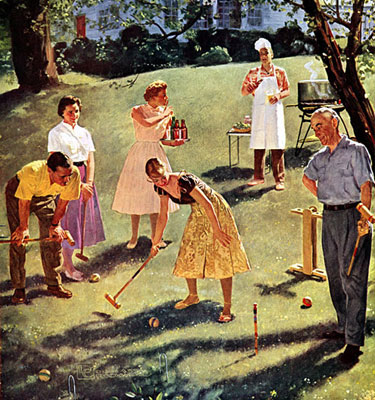 We cut through the sprawling, meticulously manicured park amidst the morning haze, humidity and blare of cicadas and car horns. By 11am we had reached the stark wrought iron and glass doors to Grandmother’s towering apartment complex, a node of Shanghai’s stupefying development. We took off our shoes in the narrow halogen lit hallway outside her 12th story apartment and stepped into plastic slippers waiting at the door. The warm smell of an active kitchen beckoned. The dining table was set with teacups and chopsticks. We were asked to take our seats.
We cut through the sprawling, meticulously manicured park amidst the morning haze, humidity and blare of cicadas and car horns. By 11am we had reached the stark wrought iron and glass doors to Grandmother’s towering apartment complex, a node of Shanghai’s stupefying development. We took off our shoes in the narrow halogen lit hallway outside her 12th story apartment and stepped into plastic slippers waiting at the door. The warm smell of an active kitchen beckoned. The dining table was set with teacups and chopsticks. We were asked to take our seats.
Since we had arrived in Shanghai as the guests of our dear friend Lynn, Noam and I had been trying to navigate the customs and culture of the city by way of its incredible cuisine. Lynn’s grandmother pressed in universal grandmotherly persistence to discover the favorite food of us two foreign Jews. We responded with an immediate and unanimous call for dumplings, or gyoza. And so here we were, the privileged guests of a personalized dumpling brunch.
Grandmother poured us tea, then went into the kitchen to retrieve her freshly made masterpieces. She returned with a modest plate of beautiful steamed dumplings and set them before Lynn. Our eyes opened. Then two smoking cauldrons were placed in front of Noam and me. We peered upon our mountains of glistening, pinch-edged pork dumplings and gasped, overcome.
 One serving would have easily fed all three of us. But we couldn’t stand to offend Grandmother by denying her dumplings. Lynn laughed at us. Noam and I gave each other a look of solidarity. Trays of soy sauce bedazzled with scallions arrived and we set out on our journey. Each dumpling was delicious, expertly executed with meat and spice perfectly proportioned the way only grandmothers know how. By the time Lynn politely told her Grandmother she was finished (a few dumplings left on her plate), Noam and I had barely dented our portions. Yet determination was bold.
One serving would have easily fed all three of us. But we couldn’t stand to offend Grandmother by denying her dumplings. Lynn laughed at us. Noam and I gave each other a look of solidarity. Trays of soy sauce bedazzled with scallions arrived and we set out on our journey. Each dumpling was delicious, expertly executed with meat and spice perfectly proportioned the way only grandmothers know how. By the time Lynn politely told her Grandmother she was finished (a few dumplings left on her plate), Noam and I had barely dented our portions. Yet determination was bold.
Grandmother would occasionally walk into the dining room to peruse our progress – her eyebrows up, brow furrowed, mouth turned down at the corners in that way that says “hmmmmm”. Every now and again Grandmother would say something that Lynn would translate: “They’re so skinny. They need to eat. Eat!” And we did. And did. Until we began to doubt our ability to devour. Twenty dumplings down we were beginning to fade.
Lynn told us we didn’t have to finish. Which only bolstered the challenge. We hit a rhythm, and miraculously began to see the bottoms of the large cookware from which we ate. Grandmother gave a look we read as suspicious yet pleased. We were stuffed, though encouraged.
When the last dumpling went down, we beamed with pride, held our stomachs and smiled at Grandmother to show our deepest appreciation. We had conquered the unconquerable. Had made our way through at least a pound of minced pork and homemade dough. We had actually achieved a look of surprise on Grandmother’s face.
We begged Lynn to ask Grandmother what she thought of our appetites, waiting for a doting, impressed response. Grandmother looked us over, and said one quick word before disappearing into the kitchen. Lynn stifled a laugh. “What did she say,” we wondered? Lynn looked at us and said dryly: “She called you pigs.”


